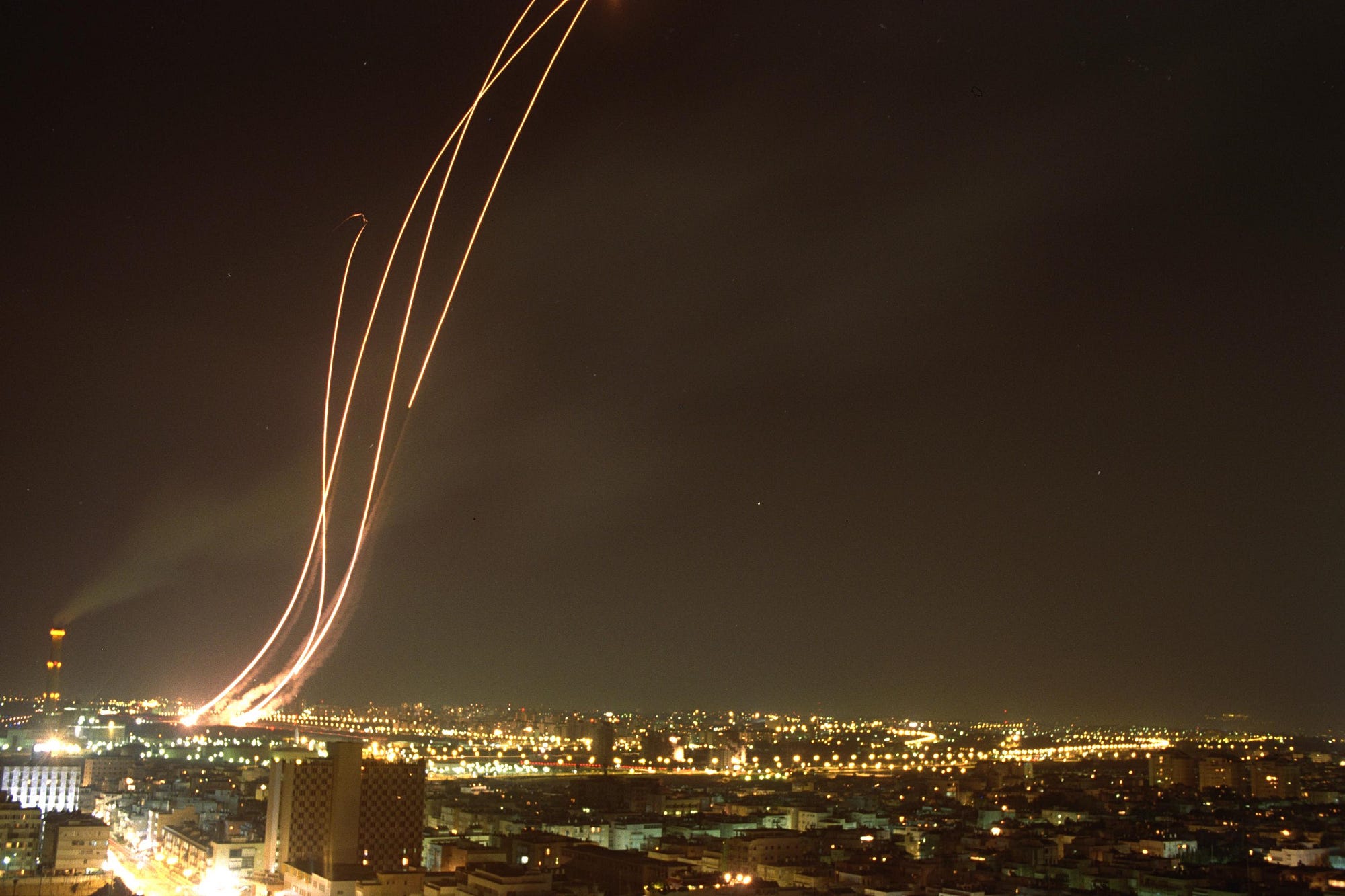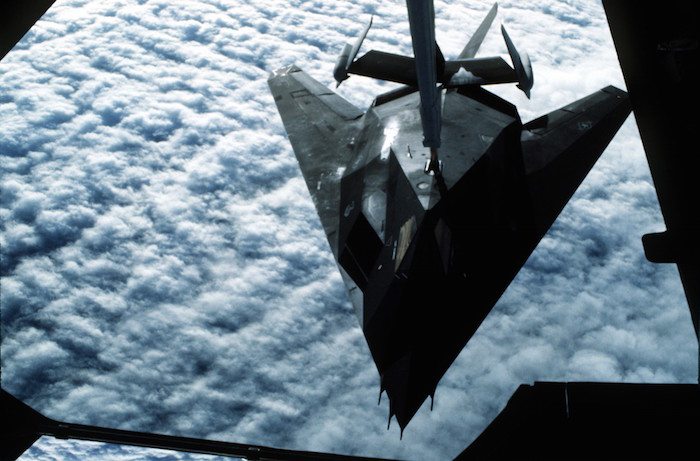And the United States encouraged that thinking
Even before his regime invaded and annexed the oil-rich sheikdom of Kuwait on Aug. 2, 1990, Iraqi dictator Saddam Hussein clearly feared the possibility of a retaliatory Anglo-American nuclear attack on Iraq.
And for good reason. Washington indeed hinted that nukes were on the table.
“I know if the going gets hard, then the Americans or the British will use the atomic weapons against me, and so will Israel,” Hussein told his advisors one month before his troops stormed into Kuwait, according to analysis of hours of audio tape by the Conflicts Records Research Center.
“The only thing I have are chemical and biological weapons, and I shall have to use them,” Hussein added. “I have no alternative.”
Ironically, Hussein’s willingness to even consider deploying his non-nuclear weapons of mass destruction was the major reason the Americans raised the prospect of deploying their own WMDs.

In April 1990, the Iraqi dictator had openly threatened to “burn half of Israel” with his chemical weapons in the event of an Israeli attack on Iraq.
Hussein had also prepared to target Saudi and Israeli cities with his country’s arsenal of Scud missiles. All of the missiles were armed with conventional explosive warheads.
According to internal Iraqi discussions that CCRC documented and translated, Hussein responded to an inquiry about potentially fitting some of the Scuds with chemical payloads. “Only in case we are obliged and there is a great necessity to put them into action,” Hussein consented.
Before the coalition launched its campaign to liberate Kuwait on Jan. 17, 1991, U.S. Secretary of State James Baker warned Iraqi foreign minister Tariq Aziz against using biological or chemical weapons. Baker reminded Aziz that the United States had the “means to exact” vengeance and eliminate the Iraqi regime.

David Palkki, who contributed in the CCRC’s research, confirmed that Baghdad took what appeared to be practical steps to mitigate the affects of a nuclear attack on Iraq in the run-up to the Gulf War. “Iraq practiced massive evacuations of Baghdad and other cities, in preparation for nuclear strikes.”
“The Iraqis dispersed their forces to make them harder to destroy with nuclear weapons,” Palkki added. “There’s no smoking gun, but it seems clear to me that [Hussein] feared nuclear retaliation.”
When the Gulf War began, Hussein instantly retaliated against coalition airstrikes on Baghdad by firing conventional Scud missiles at Tel Aviv and Riyadh.
On Jan. 19, 1991, the Americans launched an enormous air raid aimed at taking out Iraq’s Tawaitha nuclear research facility near Baghdad, home of the Osirak nuclear reactor — previously bombed by the Iranians and, more famously, the Israelis.
The Package Q Strike consisted of 56 F-16s raining down unguided Mark-84 bombs on the facility and other targets in Baghdad. But the jets encountered heavy Iraqi air defenses. Two F-16s were shot down and Tawaitha remained in operation. A follow-up strike by radar-evading F-117 stealth fighters three days later also failed to destroy the nuclear facility.
Consequently, U.S. planners assigned 48 F-117s the sole task of destroying the nuke site. These Nighthawks flew a total of seven more strikes over the course of the following 32 days. The largest stealth strike package came on day 19 of Operation Desert Storm, when 17 of the iconic stealth aircraft attacked the area.
The F-117s dropped 66 bombs throughout the course of these strikes, leading the Defense Intelligence Agency to conclude that the Tawaitha facility had been severely degraded.
In destroying Iraq’s biological and chemical weapons infrastructure by conventional means — albeit at high cost — the coalition deprived Hussein of his main rationale for ever deploying the weapons of mass destruction.
It helped that Hussein clearly feared the Americans could use their own WMDs against Iraq if Iraq introduced chemical and biological weapons to the conflict.
In May 2010, Baker declined to state clearly that he had meant to imply to Aziz that America might nuke Iraq. “Of course, the warning was broad enough to include the use of all types of weapons that America possessed.”
Still, the vague threat worked. “Years later, when Saddam Hussein was captured, de-briefed and asked why he had not used his chemical weapons, he recalled the substance of my statement to Aziz in Geneva,” Baker said.
“It was not wise to use such weapons in such kind of war, with such an enemy,” Aziz told PBS in 1996. The interviewer asked if Aziz meant to imply that America could have dropped an atomic bomb on Iraq. “You can … make your own conclusions.”

